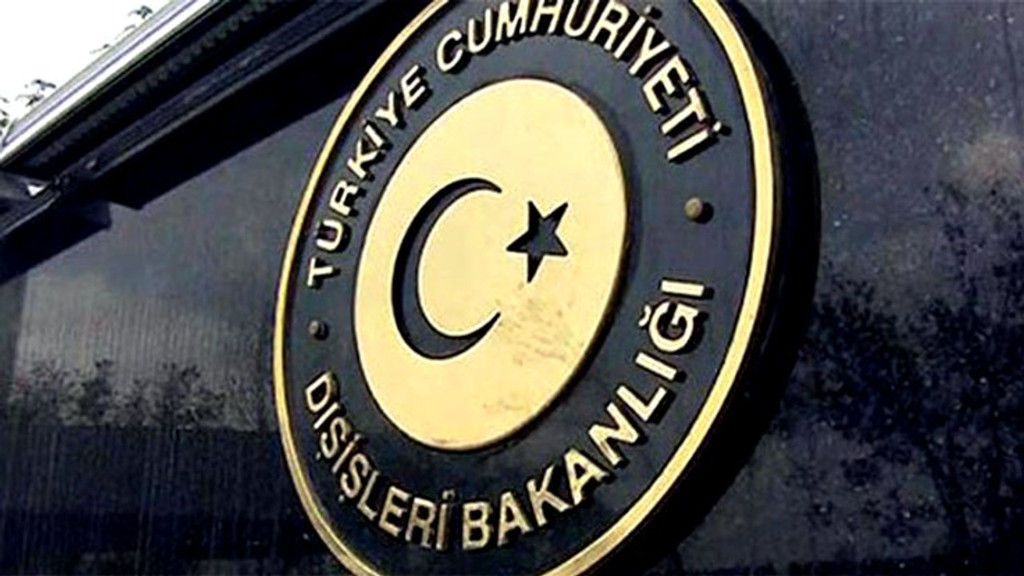Bünyamin Tekin
Allegations that two Turkish Foreign Ministry employees died by suicide in January due to intense pressure at work have put the spotlight on workplace bullying in Turkey’s diplomatic service.
Namık Tan, a lawmaker from the main opposition Republican People’s Party (CHP) and former ambassador to the United States, brought the allegations to the attention of parliament and directed a series of questions to Foreign Minister Hakan Fidan about the incidents.
According to reports, the two diplomats who were posted to Turkish embassies in Argentina and Ethiopia died by suicide last month because they were allegedly bullied at work. Barçın Yinanç, a journalist for the T24 news website, wrote in a column published on Monday that the diplomat in Ethiopia managed to take his own life, while the person in Argentina survived, citing sources.
Tan’s request to Fidan was aimed at confirming the validity of these allegations and questioning whether administrative investigations had been launched in response to the suicides. The inquiry also aimed to uncover the wider problem of bullying within the ministry and shed light on the potentially toxic work culture that can contribute to such tragic outcomes.
According to Yinanç, there was an investigation into the death in Ethiopia, but the incident in Argentina was not investigated by the authorities. Yinanç said Turkey’s ambassador to Argentina, Ömür Budak, allegedly bullies his staff, a pattern of behavior Yinanç claims is attributed to his time as the personal assistant of former foreign minister Mevlüt Çavuşoğlu from the ruling Justice and Development Party (AKP).
However, there are many who challenge Yinanç’s narrative, which makes the ruling AKP the sole culprit in the allegedly toxic workplace in the diplomatic corps.
“I think the ministry’s organizational culture has always been plagued by toxicity. You even saw it in the anecdotes told from years before the AKP took over as the ruling party,” Ali Dinçer, a former ministry employee, tells Turkish Minute.
“You could also see it in the work hours. It’s an unwritten rule that you can’t leave the office before your superiors do, even if you have no more work that day and your boss is, say, a workaholic with nothing better to do on a Friday night than to sit there and read newspapers until 8 p.m.,” Dinçer says.
According to a report by the Medyascope news website, which cites anonymous sources within the ministry, bullying is a long-standing problem. At least two ambassadors have been removed from their positions in the last decade due to complaints.
“I only worked in Ankara and was dismissed during the post-coup purges, before I could get an overseas assignment, but from what I’ve heard, the situation is much worse at overseas missions, where you can get stuck with an abusive ambassador in a one-on-one setting inside a walled-off embassy compound in sub-Saharan Africa or a war-torn country,” according to Dinçer.
The post-coup purges he refers to are mass dismissals that took place after a coup attempt in July 2016, after which some 500 career diplomats were fired from the ministry as part of a purge under the pretext of an anti-coup crackdown that saw more than 100,000 members of the civil service dismissed.
“Of course you can lodge formal complaints about your superiors, but it’s unlikely to yield positive outcomes and is generally frowned upon in the ministry culture,” Dinçer says.
“During training sessions, they openly tell new recruits about this concept called ‘hallway record’ [koridor sicili], an unwritten record of senior management’s impression of you that can have serious implications for your career prospects,” he adds.
Indeed, what Dinçer says points to a deep-rooted culture that predates the AKP, Turkey’s Islamist-leaning ruling party.
In a post on X, former Turkish diplomat Ömer Güler criticized attempts to portray the bullying problem within the ministry as a problem unique to the AKP era.
Güler argued that bullying is not a new phenomenon introduced by the AKP, but rather a longstanding element of the institution’s culture perpetuated by Turkey’s secular old guard at the foreign ministry, often disparagingly referred to as “monşerler,” from the French “mon cher.”
Dinçer agrees.
“Being absent from the ministry since 2016, I’m not sure if things have recently gotten worse, as Ambassador Tan suggests, but I remember there was another incident where a junior diplomat posted to Kinshasa took his own life. That was in 2011, a time when the ministry was relatively independent from political influence,” he says.
The culture was so ingrained that Dinçer feared he would end up like his superiors.
“There’s a Turkish proverb that goes, “A grape decays by staring at the other grape,” which is similar in meaning to ‘One bad apple spoils the whole barrel.’ I remember how my encounters with the widespread toxicity at the ministry often left me wondering whether I’d end up being absorbed into that toxicity if I worked there for 20 years, considering that those senior managers were once fresh-faced juniors.”

